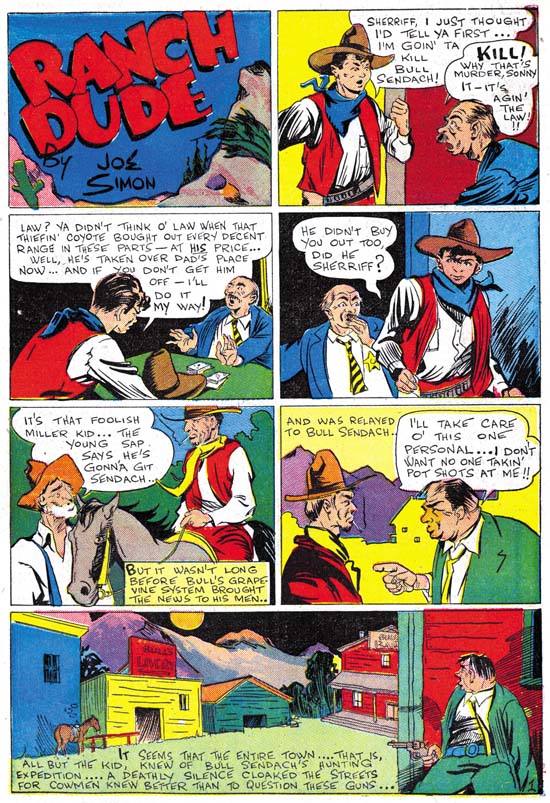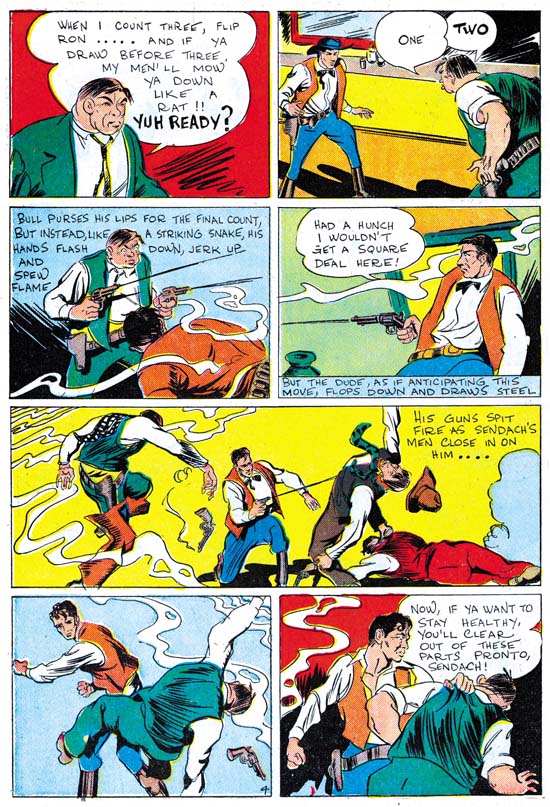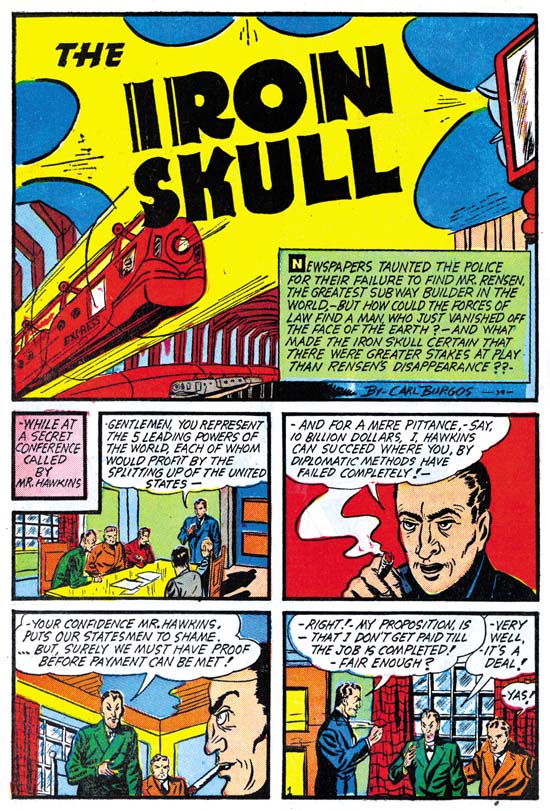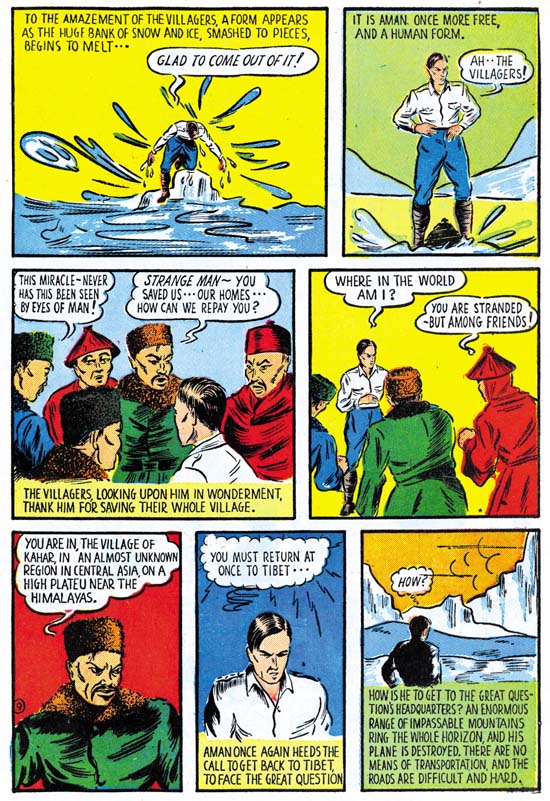
Amazing Man #10 (March 1940) Ranch Dude by Joe Simon
In his book, “The Comic Book Makers”, Joe describes being assigned his first comic book work. It was a seven page western. When Joe first started in the industry he worked on a variety of genre; science fiction, super heroes, crime and jungles stories. But this story in Amazing Man #10 is the only western I am aware of. Ranch Dude is an interesting example of Simon’s early work. I actually think it was one of his best efforts from that period. It has some features that distinguish it from other work by Joe. In Ranch Dude Joe adheres to a strict grid layout to the panels. For all other stories the panel sizes vary so that the gutters trace irregular paths. Also in Amazing Man Simon numbers the pages very simply, while in other stories the page numbers are enclosed, usually in a circle. Finally Ranch Dude is the only work I have seen where Joe makes the “splash” as a single panel no larger then the other panels.
Although cover dated as March, could Ranch Dude have been Simon’s first comic book work? But if it was why would it been kept as inventory for several months? The first published comic book work for Joe have a January cover date (the covers for Keen Detective #17 and Silver Streak #2 and the story “The Tree Men of Uranus”). Ranch Dude is six pages long, not the seven that Joe recalls in his book. But hey the book was written 50 years later, perhaps the page difference is just a memory lapse. My feeling right now is Ranch Dude is likely to be the first comic book work done by Joe Simon. It may be the “first comic book work” but as I said above it was not the “first published comic book work”. Tomorrow I will present the “first published comic work”. With all these subtle but careful phrasing I am beginning to feel like a lawyer!
I showed Ranch Dude to Joe and asked what he thought. He said that the presentation seemed simpler to him then for example the Trojak story in Daring Mystery #2 that came out a month earlier. But unfortunately Joe just could not remember his first work well enough to say if this was that story. In fact Joe said he never saw the published version of that work. He added the comment “who knew”? From previous conversations I took that to mean who knew that comics would last, that Joe would stay in that business or that over 60 years later people would care? However Joe did remember that the villain of the story, Bull Sendach” was named after his roommate in Syracuse Murray Sendach.

Amazing Man #10 (March 1940) Ranch Dude by Joe Simon
If this was Joe’s first comic book art then he adopted his working method right from the start. Compare the shooting man from panel 5 of page 4 with the one on the cover to Keen Detective #17. I cannot say what the source was but this repeated use of the same image show Joe was swiping from someplace. Also add some robes and the man falling on the right of the same panel becomes the Arab shot in Keen Detective #17. Previously I mentioned that Joe seemed to have picked up from Jack the theme of a hero slugging a foe so hard that he sends him flying. I recently showed that Simon used this device prior to meeting Jack. Here is an example at least two months before meeting Kirby, perhaps even four months.

Amazing Man #10 (March 1940) The Iron Skull by Carl Burgos
I really cannot say what were some of Joe’s influences. He shared the Amazing Man Comics #10 with Carl Burgos. Carl did a really great story but I really do not think Simon picked up anything from Carl.

Amazing Man #10 (March 1940) The Amazing Man by Bill Everett
Bill Everett was also in Amazing Man #10 doing both the cover and the feature story. I have to say that at least for these particular works I am not that impressed by Bill. The story by Burgos is better and I like Joe’s first covers much more then the Amazing Man #10 cover. However in the Amazing Man story Bill sometimes draws the eyes and eyebrows in a single angular form similar to the way Joe did. In his book Joe describes having to learn the simpler drawing methods necessary in comics. Perhaps he was given some comics with Bill Everett material in them as examples. Joe says he is not sure whether he met Everett.


Hi Harry,
Thanks for finally tracking this down. When we talked about this story a few weeks ago, you weren’t sure you could. These early stories show that Joe was fairly adaptable to different genres.
Much as we complain about Overstreet or the GCD for their mistakes, in this instance, the GCD was right, and this fills in an important hole in Joe’s early developement.
Joe’s lettering is so easilly recognised, it’s poor, but recognizable. Easy to see why he recruited a professional letterer as soon as he had the ability.